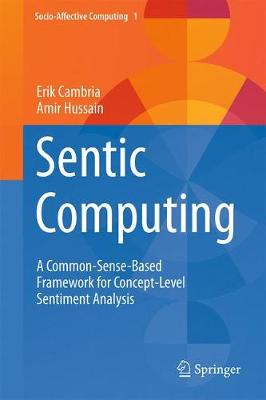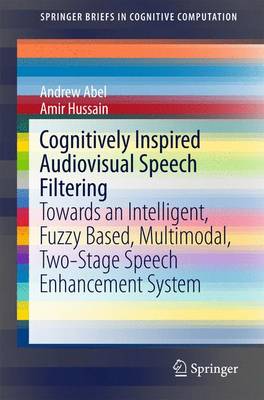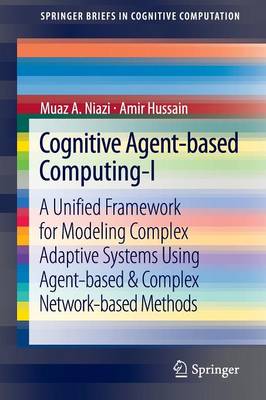SpringerBriefs in Cognitive Computation
2 primary works • 3 total works
Book 2
This volume presents a knowledge-based approach to concept-level sentiment analysis at the crossroads between affective computing, information extraction, and common-sense computing, which exploits both computer and social sciences to better interpret and process information on the Web.
Concept-level sentiment analysis goes beyond a mere word-level analysis of text in order to enable a more efficient passage from (unstructured) textual information to (structured) machine-processable data, in potentially any domain.
Readers will discover the following key novelties, that make this approach so unique and avant-garde, being reviewed and discussed:
• Sentic Computing's multi-disciplinary approach to sentiment analysis-evidenced by the concomitant use of AI, linguistics and psychology for knowledge representation and inference
• Sentic Computing’s shift from syntax to semantics-enabled by the adoption of the bag-of-concepts model instead of simply counting word co-occurrence frequencies in text
• Sentic Computing's shift from statistics to linguistics-implemented by allowing sentiments to flow from concept to concept based on the dependency relation between clauses
This volume is the first in the Series Socio-Affective Computing edited by Dr Amir Hussain and Dr Erik Cambria and will be of interest to researchers in the fields of socially intelligent, affective and multimodal human-machine interaction andsystems.
Concept-level sentiment analysis goes beyond a mere word-level analysis of text in order to enable a more efficient passage from (unstructured) textual information to (structured) machine-processable data, in potentially any domain.
Readers will discover the following key novelties, that make this approach so unique and avant-garde, being reviewed and discussed:
• Sentic Computing's multi-disciplinary approach to sentiment analysis-evidenced by the concomitant use of AI, linguistics and psychology for knowledge representation and inference
• Sentic Computing’s shift from syntax to semantics-enabled by the adoption of the bag-of-concepts model instead of simply counting word co-occurrence frequencies in text
• Sentic Computing's shift from statistics to linguistics-implemented by allowing sentiments to flow from concept to concept based on the dependency relation between clauses
This volume is the first in the Series Socio-Affective Computing edited by Dr Amir Hussain and Dr Erik Cambria and will be of interest to researchers in the fields of socially intelligent, affective and multimodal human-machine interaction andsystems.
Book 5
Cognitively Inspired Audiovisual Speech Filtering
by Andrew Abel and Amir Hussain
Published 19 August 2015
This book presents a summary of the cognitively inspired basis behind multimodal speech enhancement, covering the relationship between audio and visual modalities in speech, as well as recent research into audiovisual speech correlation. A number of audiovisual speech filtering approaches that make use of this relationship are also discussed. A novel multimodal speech enhancement system, making use of both visual and audio information to filter speech, is presented, and this book explores the extension of this system with the use of fuzzy logic to demonstrate an initial implementation of an autonomous, adaptive, and context aware multimodal system. This work also discusses the challenges presented with regard to testing such a system, the limitations with many current audiovisual speech corpora, and discusses a suitable approach towards development of a corpus designed to test this novel, cognitively inspired, speech filtering system.
Complex Systems are made up of numerous interacting sub-components. Non-linear interactions of these components or agents give rise to emergent behavior observable at the global scale. Agent-based modeling and simulation is a proven paradigm which has previously been used for effective computational modeling of complex systems in various domains. Because of its popular use across different scientific domains, research in agent-based modeling has primarily been vertical in nature. The goal of this manuscript is to provide a single hands-on guide to developing cognitive agent-based models for the exploration of emergence across various types of complex systems. We present practical ideas and examples for researchers and practitioners for the building of agent-based models using a horizontal approach - applications are demonstrated in a number of exciting domains as diverse as wireless sensors networks, peer-to-peer networks, complex social systems, research networks, epidemiological HIV


